Russia fired the first salvoes in what could develop into a trade war with Ukraine and the west, closing a Ukrainian-owned confectionery factory and stepping up inspections of goods at the border.
Tensions have also risen between Russia and France over a €1.2bn (£1bn) deal for two Mistral warships after the foreign minister, Laurent Fabius, said earlier thisi week that Paris may cancel the contract if Russia provoked further escalation in Ukraine.
Russia's deputy prime minister, Dmitry Rogozon, who is in charge of the defence industry, responded on Wednesday that France should either build the two warships for Russia on time "or return the money and parts of these warships' hulls" that had already been constructed. Russia's United Shipbuilding Corporation said France would have to pay huge penalties if it terminated the contract, state news agency RIA Novosti reported.
On Thursday morning, Russian riot police seized a factory in the city of Lipetsk, south-west Russia, operated by the Ukrainian confectionary company Roshen and stopped production, Ukraine's foreign and economic ministries said in a joint statement, calling the move the "continuation of a politically motivated campaign" against the company.
Other reports said police had also taken control of a Roshen warehouse in Lipetsk, essentially derailing the company's extensive Russian distribution network. According to the company's website, the Lipetsk plant is its only factory in Russia.
Meanwhile, Reuters reported that Russian border guards had increased customs checks "over possible attempts to bring contraband in from Ukraine, including weapons," a customs official said. Earlier in the day, Russia's FSB security agency announced it had shut down an international smuggling ring that was bringing weapons through Ukraine into Russia's restive North Caucasus, confiscating 12 handguns from a car at the Russian-Ukrainian border.
The moves came as Moscow said it would officially incorporate Ukraine's breakaway Crimean peninsula into Russia by the end of the week, straining relations with Kiev still further. Nonetheless, Ukraine's ambassador in Geneva said on Thursday that his government sought "normal trade relations" with Russia. In recent years, Russia has been Ukraine's largest trading partner.
Masha Lipman, a Carnegie Centre Moscow analyst, said Russia's actions were probably politically motivated. "These instruments are always at hand, and they've been used recently … I don't see why they wouldn't be used again now," she said.
Russia tightened customs controls on Ukrainian goods this summer, also banning Roshen projects for allegedly violating safety standards. Most interpreted these measures as a form of pressure on Yanukovych as he considered shunning the Russian-led customs union in favour of an association agreement with the European Union.
Petro Poroshenko, Roshen's owner and Ukraine's seventh-richest man, was a main backer of the Euromaidan protests that ousted President Viktor Yanukovych. Known as the "chocolate king", he plans to run for president in May and had a significant edge over the former boxer Vitaly Klitschko, his main rival for the position, in polls this month.
Ukrainian musicians who supported the Euromaiden movement have also been hit by the fallout from the diplomatic crisis. On Thursday, organisers in the Siberian city of Barnaul cancelled a 12 April performance by Ukraine's most famous rock band Okean Elzi, which has supported the Euromaidan movement and performed before tens of thousands of protesters in Kiev, in December.
The decision came after similar ones in several other Russian cities, including Vladivostok and Saint Petersburg, to cancel or indefinitely delay Okean Elzi concerts after a well-known conservative Saint Petersburg politician, Vitaly Milonov, called for the musicians to be banned for their "radical views". Russian politicians have long painted the new Kiev government as dominated by radical nationalists.
Belarus's most popular band, Lyapis Trubetskoi, said on Thursday that organisers in the city of Tyumen had cancelled their concert under pressure from the authorities. Previously, Communist party politicians in Pskov had called for the band's concert there to be banned because its leader had "supported the overthrow of the Ukrainian government" during an appearance before protesters in Kiev.
Meanwhile, the Ukrainian national opera in Kiev cancelled an appearance next week by the Russian pianist Denis Matsuyev. The reason for the cancellation was not given, but the pianist was previously among 390 cultural figures who signed a letter supporting Putin's intervention in Crimea.
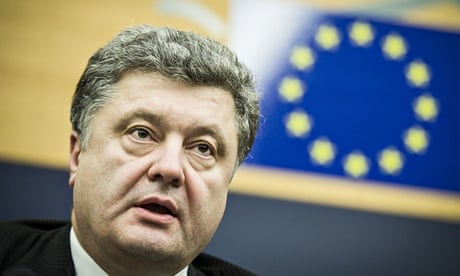
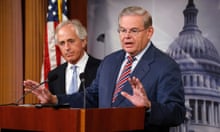

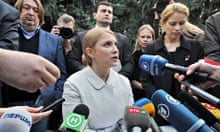

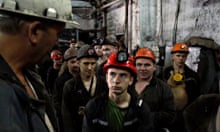
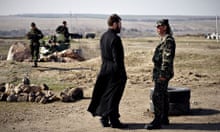
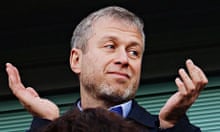
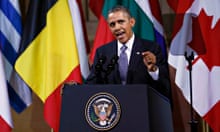
Comments (…)
Sign in or create your Guardian account to join the discussion